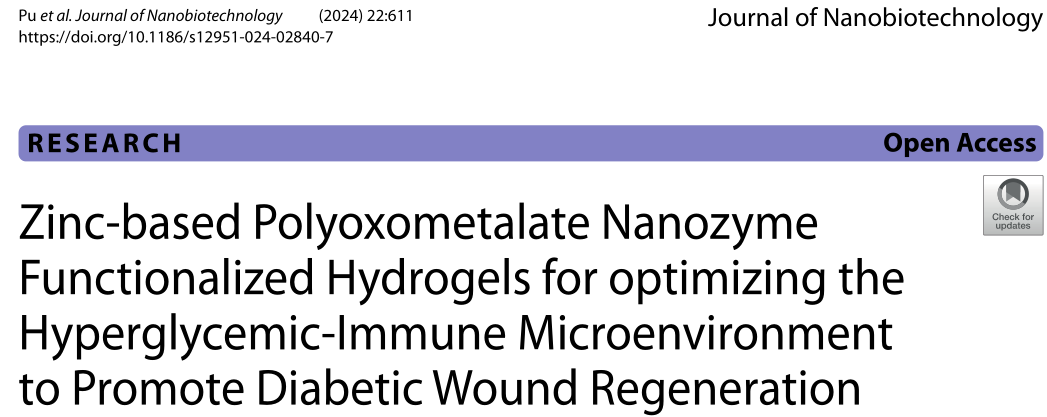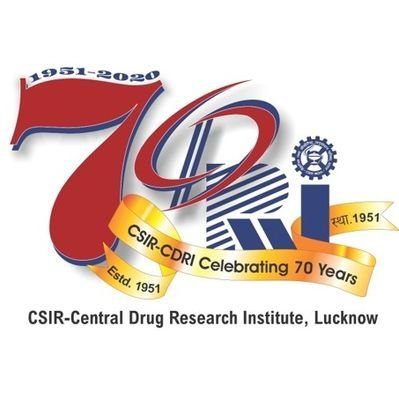预约演示
更新于:2025-05-07
catalase
更新于:2025-05-07
基本信息
别名 CAT、catalase |
简介 Catalyzes the degradation of hydrogen peroxide (H(2)O(2)) generated by peroxisomal oxidases to water and oxygen, thereby protecting cells from the toxic effects of hydrogen peroxide (PubMed:7882369). Promotes growth of cells including T-cells, B-cells, myeloid leukemia cells, melanoma cells, mastocytoma cells and normal and transformed fibroblast cells (PubMed:7882369). |
关联
1
项与 catalase 相关的药物作用机制 GPx抑制剂 [+1] |
在研机构- |
在研适应症- |
非在研适应症 |
最高研发阶段终止 |
首次获批国家/地区- |
首次获批日期1800-01-20 |
100 项与 catalase 相关的临床结果
登录后查看更多信息
100 项与 catalase 相关的转化医学
登录后查看更多信息
0 项与 catalase 相关的专利(医药)
登录后查看更多信息
76,532
项与 catalase 相关的文献(医药)2025-12-31·Redox Report
Involvement of oxidative stress in post-acute sequelae of COVID-19: clinical implications
Article
作者: Wilhelm Filho, Danilo ; Souza de Souza, Kamylla Fernanda ; Coimbra Motta-Castro, Ana Rita ; Miranda Campos, Nathalia ; Paredes-Gamero, Edgar Julian ; Parisotto, Eduardo Benedetti ; Trentin Perdomo, Renata ; Teixeira Espinoça, Isabelly ; Valente Coronel, Paola Mayara ; Seiji Nakano Ota, Rafael ; Luiz Soares Basilio, Denise Caroline
2025-12-31·Redox Report
Dietary supplementation of male mice with inorganic, organic or nanoparticle selenium preparations: evidence supporting a putative gut-thyroid-male fertility axis
Article
作者: Salah, W. ; Mojadadi, A. ; Au, A. ; Witting, P. K. ; Ortiz Cerda, T. ; Shao, J.-Y. ; Webb, J. ; Andersen, J. W. ; Ahmad, G. ; Harris, H. H. ; Bell-Anderson, K. ; O’Neil, T.
2025-12-31·Emerging Microbes & Infections
Genomic islands and molecular mechanisms relating to drug-resistance in
Clostridioides
(
Clostridium
)
difficile
PCR ribotype 176
Article
作者: Gabriela, Balikova Novotna ; Jaroslava, Zikova ; Anna, Soltesova ; Wiep Klaas, Smits ; Marcela, Krutova ; Ed, Kuijper ; Vojtech, Kovarovic ; Hanna, Pituch ; Suhanya, Prasad ; Fanny, Demay ; Elena, Novakova ; Marie, Brajerova
25
项与 catalase 相关的新闻(医药)2024-10-30
·生物谷
本研究构建了一个综合调节糖尿病创面高血糖微环境和重塑免疫微环境的综合治疗系统,该系统被证明能够有效消除糖尿病伤口高血糖微环境的毒性作用。
糖尿病(DM)是一项重大的公共卫生危机,糖尿病伤口是糖尿病最常见的并发症。糖尿病创面患者往往存在延迟愈合、感染甚至截肢的风险。血糖浓度过高会导致细胞内MAPK通路异常激活,进而引发炎症反应和细胞凋亡。在糖尿病创面中,高血糖导致三羧酸循环(TCA)中的电子供体增加,损害细胞内抗氧化酶如超氧化物歧化酶(SOD)、谷胱甘肽过氧化物酶(GPx)和过氧化氢酶(CAT)的活性,导致过量活性氧(ROS)的产生,激活巨噬细胞内NF-κB信号通路,诱导其向M1表型极化,导致免疫微环境的破坏。
正常的伤口愈合包括四个重叠的级联反应:止血、炎症、增殖和重塑。巨噬细胞是先天免疫系统的重要组成部分,是伤口愈合的关键调节因子。在糖尿病病理状态下,巨噬细胞可塑性受损,M1向M2的表型转变受阻,导致巨噬细胞处于持续的促炎状态,从而阻碍内皮细胞、成纤维细胞和其他功能细胞的促愈合活性。由于难以在复杂的病理微环境中实现准确干预,现有的糖尿病伤口治疗方法不足。因此,为了实现糖尿病创面的有效愈合,有必要制定以综合调控糖尿病创面高血糖免疫微环境综合调控、减轻高血糖微环境中各类细胞的细胞毒性和氧化应激为重点的治疗方案。
葡萄糖氧化酶(GOx)是一种与葡萄糖相互作用产生葡萄糖醛酸和过氧化氢(H2O2)的生物酶,可改善高血糖免疫微环境。然而,该反应产生的H2O2不利于伤口修复,限制了其广泛应用。因此,消除葡萄糖降解过程的副产物以及伤口中多余的活性氧是特别重要的。纳米酶是近年来发展起来的一类类酶的新型纳米材料,具有调节活性氧和免疫反应等功能,其特点是催化效率高,稳定性好,可以模拟过氧化氢酶(CAT)、超氧化物歧化酶(SOD)、谷胱甘肽过氧化物酶(GPx)等生物酶的功能。
这些特性有助于保护正常细胞免受氧化损伤和减轻炎症。钼基多金属氧酸盐(POM)纳米团簇由于其高活性氧清除功效,有望用于治疗ROS相关疾病。它具有POM结构,可以引入具有催化活性的金属离子,并与多种金属离子结合构成多金属氧化物体系,不仅具有类酶的功效,而且具有金属离子相关的生物活性。现有研究表明,锌离子与血管生成和巨噬细胞极化有关;因此,在POM结构中掺杂锌离子,模拟ROS清除相关酶的活性,同时发挥锌离子的免疫调节作用,可能是一种潜在的治疗策略。
图片来源:https://doi-org.libproxy1.nus.edu.sg/10.1186/s12951-024-02840-7
近日,来自川北医学院附属医院的研究者们在J Nanobiotechnology杂志上发表了题为“Zinc-based Polyoxometalate Nanozyme Functionalized Hydrogels for optimizing the Hyperglycemic-Immune Microenvironment to Promote Diabetic Wound Regeneration”的文章,该研究揭示了锌基多金属氧酸纳米酶功能化水凝胶可优化高血糖免疫微环境促进糖尿病伤口再生,为糖尿病伤口修复提供一种有前途的治疗方法。
在糖尿病创面中,高血糖诱导的细胞毒性和免疫微环境可塑性受损直接阻碍创面愈合过程,高血糖微环境的调节和免疫微环境的重塑是至关重要的。
纳米酶功能化水凝胶的制备工艺
图片来源:https://doi-org.libproxy1.nus.edu.sg/10.1186/s12951-024-02840-7
在本研究中,研究者开发了一种纳米酶功能化再生微环境调节剂(AHAMA/ CS-GOx@Zn-POM),用于有效修复糖尿病伤口。这种新型结构将醛和甲基丙烯酸酐修饰的透明质酸水凝胶(AHAMA)和壳聚糖纳米颗粒(CS NPs)结合在一起,包封了锌基多金属氧酸纳米酶(Zn-POM)和葡萄糖氧化酶(GOx),促进了这两种酶的持续释放。
GOx催化葡萄糖生成葡萄糖酸和(H₂O₂),从而减轻高血糖微环境对伤口愈合的影响。Zn-POM具有过氧化氢酶和超氧化物歧化酶活性,可清除活性氧和葡萄糖降解副产物H₂O₂。此外,Zn-POM通过抑制MAPK/IL-17信号,减少促炎细胞因子,上调抗炎介质的表达,诱导M1巨噬细胞重编程为M2表型,从而重塑免疫微环境,促进伤口内血管生成和胶原再生。在大鼠糖尿病创面模型中,ahaa /CS-GOx@Zn-POM的应用增强了新生血管和胶原沉积,加速了创面愈合过程。
纳米酶功能化水凝胶促进糖尿病创面愈合及Zn-POM调节巨噬细胞的机制示意图
图片来源:https://doi-org.libproxy1.nus.edu.sg/10.1186/s12951-024-02840-7
综上所述,本研究构建了一个综合调节糖尿病创面高血糖微环境和重塑免疫微环境的综合治疗系统(AHAMA/CS-GOx@Zn-POM),该系统被证明能够有效消除糖尿病伤口高血糖微环境的毒性作用,并通过级联反应催化葡萄糖的无害降解,以减轻氧化应激和改善细胞功能。这种基于高血糖免疫微环境调节的综合调控策略有望为糖尿病伤口修复提供一种有前途的治疗方法。(生物谷 Bioon.com)
参考文献
Chaoyu Pu et al. Zinc-based Polyoxometalate Nanozyme Functionalized Hydrogels for optimizing the Hyperglycemic-Immune Microenvironment to Promote Diabetic Wound Regeneration. J Nanobiotechnology. 2024 Oct 8;22(1):611. doi: 10.1186/s12951-024-02840-7.

免疫疗法
2024-10-21
·药时代
氧化还原稳态的失衡是各种人类疾病的根源之一,特别是ROS(活性氧)水平的异常升高,被证实对肿瘤的发生与发展具有关键推动作用。鉴于此,科学家们将通过调节ROS及其复杂的调控网络作为抗癌治疗的新策略。近期,该领域取得了突破性进展,不仅揭示了新氧化还原信号通路,还发现了生物分子相分离现象在ROS调控中的独特作用。本文将重点讨论靶向ROS的癌症治疗策略与药物,并对未来研究方向进行展望。
01
ROS的基本概念和生成
ROS指生物体内由氧分子直接或间接转化而来的具有高度化学活性的含氧物质,包括超氧阴离子、过氧化氢、羟自由基等。它们广泛存在于生物体内,在调节生物过程成发挥重要作用。
ROS在生物体内的生成途径主要包括线粒体呼吸链、酶促反应(如NADPH氧化酶能催化生成ROS)、外源性因素(如紫外线辐射、化学物质)等方面。为了维持生物体内的氧化还原稳态,细胞通过抗氧化酶系统(超氧化物歧化酶(SOD)、过氧化氢酶(CAT)、谷胱甘肽过氧化物酶(GPx)等催化ROS的分解和清除)、非酶抗氧化剂(非酶抗氧化剂:如维生素C、维生素E、谷胱甘肽(GSH)等能与ROS反应并中和其活性)等机制来控制和调节ROS的水平[1]。
02
ROS介导的信号传导
翻译后修饰(PTMs)是ROS调节细胞信号传导的主要机制,ROS通过修饰氧化还原敏感残基影响其目标蛋白的功能。ROS直接介导半胱氨酸硫醇基和蛋氨酸硫残基的氧化修饰,进而影响蛋白质的结构和稳定性、蛋白质之间的相互作用、亚细胞定位等,导致其各自功能的改变。这些变化可以影响组蛋白和DNA的表观遗传修饰,从而影响转录过程。ROS通过PTMs调节对氧化还原敏感的转录因子进而影响mRNA和非编码RNA(ncRNA)的转录[2]。
图1 ROS介导的信号传递过程
03
靶向ROS的癌症治疗策略
在癌症中靶向ROS能够实现对肿瘤细胞的选择性治疗,且对正常细胞的毒性相对较低。根据作用机制,靶向ROS的癌症治疗策略可分为两类:靶向ROS生成机制和靶向氧化还原适应机制[3]。
图2 靶向癌症中ROS的治疗策略
04
靶向ROS生成机制
癌细胞由于其异常的代谢活动和遗传背景,往往处于较高的氧化应激状态,即细胞内ROS水平相对较高。这种内在的ROS应激是癌细胞生物学特性的一部分,与它们的增殖、生存和耐药性密切相关。当针对癌细胞中的ROS生成机制进行靶向治疗时通过增加细胞内的ROS水平,加剧氧化应激,对细胞内的DNA、蛋白质和脂质等生物分子造成广泛损伤,当这种损伤达到一定程度时,会触发癌细胞的凋亡或坏死机制,导致不可逆的细胞损伤和死亡,或者通过减少ROS水平使其降低到不足以支持癌细胞的正常增殖。
多种药物和化合物可以通过上调ROS产生酶(如NOX5)的活性来增加ROS的生成。例如,多靶点酪氨酸激酶抑制剂安罗替尼(anlotinib)能够在体外诱导鳞状细胞癌细胞中的O2•−生成和凋亡。一些氧化还原调节剂能够在癌细胞中作为促氧化剂,促进ROS的生成,而在正常组织中则作为抗氧化剂,保护组织免受氧化应激的损害,这种选择性作用机制使得它们在癌症治疗中具有潜在的应用价值。NADPH氧化酶(NOX)是一种能够催化生成ROS的酶,在癌症中某些致癌转化,如RAS基因驱动的NOX表达上调,会导致ROS的生成增加。ROS的过量生成与多种癌症的恶性进展有关。GKT831是一种有效的双NADPH氧化酶(NOX)抑制剂,主要针对NOX1和NOX4亚型,GKT831能够抑制ROS的生成,并使肿瘤细胞对辐射更加敏感。
05
靶向氧化还原适应机制
野生型p53在ROS应激下被激活,导致细胞周期停滞或凋亡,这是一种防止细胞损伤和癌变的重要机制。而某些p53突变后则能在应激条件下促进细胞存活,这也是癌细胞逃避凋亡的一种策略。突变型p53通过上调ROS清除系统(如NRF2介导的途径)和激活抗凋亡信号(如NF-κB)来适应ROS应激。抑制内源性抗氧化剂或其上游调控分子成为破坏p53突变细胞氧化还原适应机制的手段。
表1 靶向癌症中活性氧(ROS)并具有治疗潜力的新药物
06
结语
针对癌症中的活性氧(ROS)进行靶向治疗是一项充满前景的治疗策略,它带来了新机遇与挑战。ROS应激下的免疫反应对癌症具有双刃剑作用,既能通过细胞毒性免疫细胞抑制肿瘤生长,也能通过免疫抑制细胞促进癌细胞增殖。ROS与炎症细胞因子相互刺激,放大炎症信号,影响肿瘤生长或导致系统性代谢异常。未来研究应综合考虑癌细胞和免疫系统,基于患者的癌症阶段、ROS应激和免疫功能,实现抗氧化剂和氧化还原调节的个性化治疗。
Ref.
[1] Wu K, El Zowalaty AE, Sayin VI, Papagiannakopoulos T. The pleiotropic functions of reactive oxygen species in cancer. Nat Cancer. 2024 Mar;5(3):384-399.
[2] An X, Yu W, Liu J, Tang D, Yang L, Chen X. Oxidative cell death in cancer: mechanisms and therapeutic opportunities. Cell Death Dis. 2024 Aug 1;15(8):556.
[3] Glorieux C, Liu S, Trachootham D, Huang P. Targeting ROS in cancer: rationale and strategies. Nat Rev Drug Discov. 2024 Aug;23(8):583-606.
封面图来源:123rf
版权声明/免责声明
本文为授权转载文章。
本文仅作信息交流之目的,不提供任何商用、医用、投资用建议。
文中图片、视频、字体、音乐等素材或为药时代购买的授权正版作品,或来自微信公共图片库,或取自公司官网/网络,部分素材根据CC0协议使用,版权归拥有者,药时代尽力注明来源。
如有任何问题,请与我们联系。
衷心感谢!
药时代官方网站:www.drugtimes.cn
联系方式:
电话:13651980212
微信:27674131
邮箱:contact@drugtimes.cn
喜讯频传!1天3家,礼新、若弋、平方和官宣融资成功!百裕制药成功出海!雅本化学新研发大楼启用典礼圆满举行
三期临床失败后,吉利德决定自愿撤回适应症
“创新是金,赛出新高”——金赛药业2024首届研发日圆满落幕
点击查看更多精彩!
信使RNA
2024-10-16
·生物谷
文章解读+创新点拓展,为您带来科研新体验~
导读
特应性皮炎(Atopic Dermatitis, AD)是一种常见的慢性炎症性皮肤病,给患者带来极大的身体不适与心理压力。传统治疗方法往往伴随着副作用或疗效不佳的问题。近期,一项发表于JOURNAL OF THE AMERICAN CHEMICAL SOCIETY的研究Dual-Site Biomimetic Cu/Zn-MOF for Atopic Dermatitis Catalytic Therapy via Suppressing FcγR-Mediated Phagocytosis,展示了一种新颖的双位点仿生铜锌金属有机框架(Cu/Zn-MOF),通过抑制Fcγ受体介导的吞噬作用信号来缓解AD症状。这项研究不仅为AD的治疗提供了新的思路,还可能开启纳米材料在皮肤疾病治疗领域的全新篇章。
研究背景
随着对AD发病机制理解的深入,人们逐渐认识到活性氧(ROS)水平升高是导致病情加重的关键因素之一。超氧化物歧化酶(SOD)作为体内清除ROS的第一道防线,在调节免疫反应方面起着至关重要的作用。然而,由于SOD自身特性限制了其直接应用于临床的可能性,寻找具有类似功能但更易于控制和使用的替代品成为当前研究热点。本研究中所提出的Cu/Zn-MOF模仿了天然铜锌超氧化物歧化酶(CuZn-SOD)结构特点,并展现出显著的抗氧化性能。
研究设计与结果
研究人员设计并合成了一种具备四种酶样活性的Cu/Zn-MOF材料。通过一系列体内外实验验证了该材料能够有效降低角质形成细胞内的ROS水平,从而减轻氧化应激状态下的损伤。更重要的是,在小鼠模型中观察到Cu/Zn-MOF比常用的强效皮质类固醇药物更能有效地预防机械损伤、减少经皮水分流失以及抑制炎症反应,同时保持良好的生物安全性。
图1:双位点仿生Cu/Zn-MOF治疗AD的应用示意图
研究者发现Cu/Zn-MOF通过模仿天然铜锌超氧化物歧化酶(CuZn-SOD)的结构和功能,具备多种抗氧化酶样活性,能够有效清除皮肤细胞内的活性氧(ROS)。此外,Cu/Zn-MOF还能抑制Fcγ受体介导的吞噬信号通路,从而减少炎症反应。这些特性使得Cu/Zn-MOF能够在局部应用时显著减轻AD引起的皮肤炎症、红斑和瘙痒等症状,为AD的治疗提供了一种新的高效且低副作用的方法。
图2:Cu/Zn-MOF的制备和表征
随后,研究人员通过将铜离子引入由锌离子和二甲基咪唑在室温下自组装形成的金属有机框架中,成功合成了具有菱形十二面体结构的Cu/Zn-MOF纳米颗粒。透射电子显微镜(TEM)图像显示这些纳米颗粒均匀分散且形态规整。高角度环形暗场扫描透射电子显微镜(HAADF-STEM)及元素映射表明C、N、Zn和Cu元素在Cu/Zn-MOF中均匀分布。X射线光电子能谱(XPS)检测到Zn和Cu的特征峰,进一步证实了Cu/Zn-MOF的成功构建。
此外,氮气吸附-脱附等温线和孔径分布曲线显示Cu/Zn-MOF具有高达1753.72 m²/g的大比表面积,并且具备微孔和介孔结构,有利于金属活性位点的暴露。选区电子衍射(SAED)图案与模拟的ZIF-8晶体结构一致,表明Cu/Zn-MOF具有良好的单晶性质。这些表征结果共同证明了Cu/Zn-MOF的高质量合成及其优异的物理化学性能。
图3:用XAFS法对Cu/Zn-MOF进行了结构表征
通过X射线吸收精细结构(XAFS)分析揭示了Cu/Zn-MOF中Cu和Zn位点的原子结构。XANES光谱显示,Cu/Zn-MOF中的Cu和Zn的价态接近+2。EXAFS分析进一步表明,Cu和Zn在Cu/Zn-MOF中均以单原子分散状态存在,且分别与4个氮原子配位,形成Cu-N4和Zn-N4结构,其中Cu-N和Zn-N的键长分别为1.97 Å和2.06 Å。这些结果与天然铜锌超氧化物歧化酶(CuZn-SOD)中的金属中心结构相似,证实了Cu/Zn-MOF成功模仿了CuZn-SOD的双金属活性中心。
图4:Cu/Zn-MOF清除ROS活性的研究特征
随后通过一系列体外实验,研究人员评估了Cu/Zn-MOF的超氧化物歧化酶(SOD)样活性、谷胱甘肽过氧化物酶(GPx)样活性、硫醇过氧化物酶(TPx)样活性和抗坏血酸过氧化物酶(APx)样活性。结果显示,Cu/Zn-MOF在不同浓度下均表现出显著的SOD样活性,并且在GPx样活性测试中,Cu/Zn-MOF组产生的黄色TNB明显少于对照组和Zn-MOF组。
此外,Cu/Zn-MOF还能有效促进H₂O₂与GSH或半胱氨酸反应,显示出优异的TPx样活性。在APx样活性测试中,Cu/Zn-MOF能够显著降低抗坏血酸(AsA)的吸收值,表明其具有高效的H₂O₂分解能力。这些结果共同证实了Cu/Zn-MOF具备多重抗氧化酶样活性,能够在多个层面上连续消耗ROS,从而有效缓解氧化应激。
图5:通过DFT计算确定了Cu/Zn-MOF的类SOD反应的机理
紧接着通过密度泛函理论(DFT)计算揭示的Cu/Zn-MOF模拟超氧化物歧化酶(SOD)样反应机制。计算结果表明,Cu/Zn-MOF中的Cu和Zn位点之间的距离为5.98 Å,与天然CuZn-SOD中的6.3 Å非常接近。DFT计算进一步揭示了Cu/Zn-MOF催化超氧阴离子(O₂⁻)分解的具体路径,包括*OOH吸附、*OOH分解生成*OH和O₂,以及最终释放H₂O₂的过程。自由能曲线显示,Cu/Zn-MOF催化的SOD样反应具有最低的自由能屏障(0.108 eV),显著低于单独的Cu-MOF(0.275 eV)和Zn-MOF(0.131 eV)。这些结果表明,Cu/Zn-MOF在结构和功能上成功地模仿了天然CuZn-SOD,并且具有更高的催化效率。
图6:Cu/Zn-MOF在细胞水平上抗氧化应激的特性研究
研究人员通过构建模拟特应性皮炎(AD)的体外炎症模型,发现Cu/Zn-MOF能够显著降低促炎因子TNF-α和IFN-γ诱导的角质形成细胞中IL-4和IL-33等炎症介质的表达。利用共聚焦激光扫描显微镜(CLSM)和流式细胞术检测,结果显示Cu/Zn-MOF处理后的细胞内活性氧(ROS)水平明显下降,表明该材料能够有效清除细胞内的ROS,从而保护角质形成细胞免受氧化应激损伤。这些结果进一步证实了Cu/Zn-MOF不仅具有出色的抗氧化性能,还能显著抑制炎症反应,为治疗AD提供了有力的支持。
图7:Cu/Zn-MOF可改善体内AD样表型
紧接着,研究人员通过MC903诱导的小鼠AD模型,评估了不同浓度的Cu/Zn-MOF对皮肤病变的影响。结果显示,Cu/Zn-MOF显著改善了AD样皮肤病变的外观,减少了耳部厚度和局部EASI评分,并且与激素类药物卤米松(HS)相比具有相似或更优的效果。组织学分析进一步显示,Cu/Zn-MOF能够缓解MC903引起的表皮增厚、过度角化/副角化、真皮炎症细胞浸润以及毛细血管扩张/充血等病理变化。此外,免疫组化染色表明,Cu/Zn-MOF处理后,TSLP、pSTAT3和NF-κBp50阳性细胞数量明显减少,同时Th2型细胞因子IL-4和IL-13的表达水平也显著降低。这些结果共同证实了Cu/Zn-MOF在减轻AD症状和抑制炎症反应方面的卓越疗效。
图8:Cu/zn-MOF治疗的小鼠病变的转录谱分析
研究者通过RNA测序鉴定了数百个差异表达的mRNA,并通过火山图直观地展示了这些变化。进一步的GO和KEGG通路富集分析揭示了这些差异表达基因主要参与了中间丝、防御反应、GTP酶活性、细胞外区域及多种炎症和感染相关通路。具体而言,Cu/Zn-MOF处理后,一些关键的炎症介质如Mmp10、Mmp3等的表达显著下调,而抗氧化基因Sod2、Gpx4和Cat的表达则恢复正常水平。这些结果表明,Cu/Zn-MOF能够通过调节多个炎症和氧化应激相关基因的表达,有效缓解AD引起的皮肤炎症和损伤。
图9:FcγR介导的吞噬作用的关键途径的鉴定和检测
最后,研究人员发现Cu/Zn-MOF处理后,抗氧化基因如Sod2、Gpx4和Cat的表达显著上调,而与FcγR介导的吞噬作用相关的FcγRIIB、SHP-1和SHIP-1蛋白及mRNA水平也得到恢复。Western blot和RT-qPCR分析进一步证实了这些变化。此外,免疫组化结果显示,正常皮肤中的FcγRIIB表达明显高于AD病变区域,而Cu/Zn-MOF处理能够有效增加AD病变区域的FcγRIIB表达。这些结果共同表明,Cu/Zn-MOF通过抑制FcγR介导的吞噬信号通路,减少了活性氧(ROS)的积累,从而减轻了AD引起的炎症反应。
拓展延伸
除了在特应性皮炎治疗中的显著效果外,双位点仿生Cu/Zn-MOF以及类似的纳米材料还在多个科研领域展现出广泛的应用潜力。这些材料不仅具有独特的物理化学性质,而且能够模拟天然酶的功能,为解决多种生物医学问题提供了新的解决方案。
1. 抗氧化与抗炎治疗
Cu/Zn-MOF的多重抗氧化活性使其成为一种理想的抗氧化剂,可以应用于其他由氧化应激引起的疾病中,如心血管疾病、糖尿病并发症及神经退行性疾病等。此外,其抑制炎症信号通路的能力也意味着它可能对各种炎症性疾病有效,例如关节炎和哮喘。
2. 药物递送系统
纳米材料因其尺寸小、表面积大等特点而被广泛研究作为药物载体。通过表面修饰或内部结构设计,Cu/Zn-MOF可以装载并控释特定药物,从而提高药物疗效并减少副作用。这使得它们特别适用于癌症化疗药物、基因疗法载体等领域。
3. 生物成像与诊断
某些纳米材料由于具备良好的光学或磁学特性,可用于生物成像与诊断。例如,通过引入荧光标记或其他显影剂,Cu/Zn-MOF可以在细胞水平上实现精准定位和可视化追踪,有助于早期疾病的检测和监测。
4. 组织工程与再生医学
纳米材料还可以用作支架材料,在组织工程中促进细胞生长和分化。Cu/Zn-MOF的多孔结构和可控的降解速率使其成为潜在的优良骨修复材料。同时,它们也可以用来制造人工器官或皮肤替代品,以支持再生医学的发展。
5. 智能响应材料
一些纳米材料可以根据外界条件(如pH值、温度、光照)变化而改变自身性质,这种智能响应特性使其在传感器、智能纺织品及自愈合材料等方面有着广阔的应用前景。
临床应用与展望
综上所述,双位点仿生Cu/Zn-MOF不仅在特应性皮炎治疗中展示了巨大的潜力,而且其独特的性能也为其他领域的科学研究和技术发展带来了新的机遇。随着相关技术的不断进步和完善,我们有理由相信,这类基于纳米技术的创新方案将在未来发挥更加重要的作用,并造福于人类健康和社会福祉。
我们希望向广大医疗工作者及科研人员传达最新的科学研究成果及其潜在应用价值,同时也鼓励大家继续探索更多创新性的解决方案,共同推动医学领域向前发展。
注:本文旨在介绍医学研究进展,不做治疗方案推荐。如有需要,请咨询专业临床医生。
参考文献:
Huang F, Lu X, Kuai L, Ru Y, Jiang J, Song J, Chen S, Mao L, Li Y, Li B, Dong H, Shi J. Dual-Site Biomimetic Cu/Zn-MOF for Atopic Dermatitis Catalytic Therapy via Suppressing FcγR-Mediated Phagocytosis. J Am Chem Soc. 2024 Feb 7;146(5):3186-3199.
点击下方「阅读原文」,前往梅斯官网查询更多相关课程和实验技术服务支持~
临床结果
分析
对领域进行一次全面的分析。
登录
或

Eureka LS:
全新生物医药AI Agent 覆盖科研全链路,让突破性发现快人一步
立即开始免费试用!
智慧芽新药情报库是智慧芽专为生命科学人士构建的基于AI的创新药情报平台,助您全方位提升您的研发与决策效率。
立即开始数据试用!
智慧芽新药库数据也通过智慧芽数据服务平台,以API或者数据包形式对外开放,助您更加充分利用智慧芽新药情报信息。
生物序列数据库
生物药研发创新
免费使用
化学结构数据库
小分子化药研发创新
免费使用
